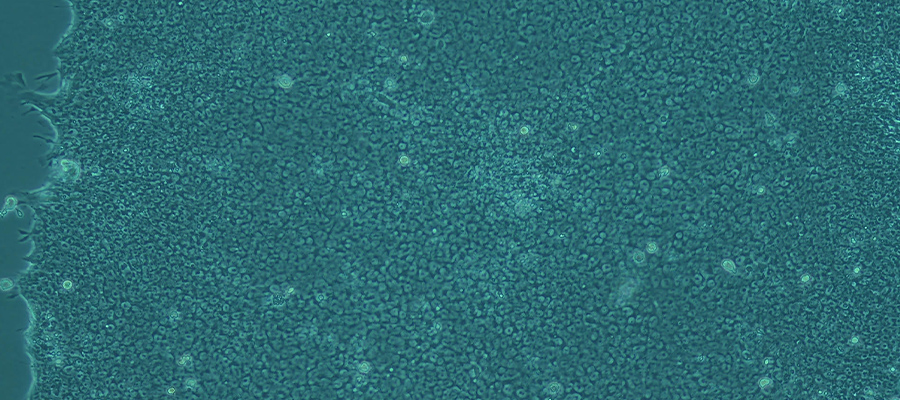
IPSc: a new type of resource offered by CRB-BioJeL
The CRB-BioJeL team is now offering a new type of biological resource to the scientific community: induced pluripotent stem cells (or IPSc), developed from cells taken from a patient with trisomy 21.
Since its creation in 2008, the BioJeL Biological Resource Center has been providing the international scientific community with biological samples from patients seen at the Institute. These samples—plasma, DNA, fibroblasts, and cell lines—are divided into four main collections: Trisomy 21, Other Intellectual Disabilities, Intellectual Disabilities of Unknown Etiology, and Controls.
In 2023, the Colibri research project will begin at the Jérôme Lejeune Institute. This project focuses on the study of genetic and epigenetic differences and cellular mechanisms associated with intellectual disability, and is based on two monozygotic twins with discordant trisomy 21. The high similarity of their genetic makeup allows for extremely detailed comparison.
iPS cells are cells that have been genetically reprogrammed to regain a pluripotent state, meaning they can differentiate into all cell types in the body. This technology makes it possible to generate cells that are difficult to obtain directly from patients, such as neurons or heart cells, making it a valuable tool for research.
This technique, developed by Japanese researcher Shinya Yamanaka and awarded the Nobel Prize in Medicine in 2012, has a wide range of applications for research and offers an ethical alternative to the use of embryonic stem cells.
The generation of IPSCs is a long and delicate process and, once differentiation has taken place, requires several characterization tests to ensure the quality required for scientific publications. These tests focus on:
- genomic integrity,
- expression of pluripotency markers,
- the ability of cells to differentiate into the three embryonic layers (endoderm, mesoderm, ectoderm).
The results were conclusive, and the first IPSc line produced at the CRB is now available in the catalog and can be requested. The line derived from the twin who does not have trisomy 21 is currently undergoing validation and should also be added to the catalog.
“While iPSc generation is fairly widespread in basic research, via platforms that produce them on demand, very few are linked to trisomy 21. It is therefore a real asset for CRB-BioJeL to now be able to offer these resources, and for our partners to benefit from them!” concludes Marie Vilaire-Meunier, head of CRB-BioJeL.
